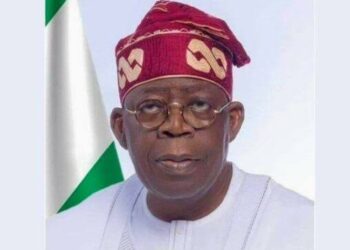The Federal High Court in Lagos has postponed the hearing of a lawsuit challenging the procurement process and environmental compliance of the Lagos-Calabar Coastal Highway project to January 14, 2025. The case, brought by Funsho Doherty, a former governorship candidate of the African Democratic Congress in Lagos State, has drawn significant attention for its focus on transparency and adherence to legal frameworks in major infrastructure projects.
Doherty filed the suit against the Attorney General of the Federation, the Bureau of Public Procurement (BPP), and Hitech Construction Company, alleging that the Federal Ministry of Works breached the Public Procurement Act of 2007 by awarding the project’s first two phases through single-source procurement rather than the mandated open competitive bidding.
He also claimed that construction commenced without the necessary Environmental Impact Assessment (EIA), a violation of the Environmental Impact Assessment Act of 1992. The plaintiff has called for a judicial declaration invalidating the contract award to Hitech Construction, as well as an order to halt further construction until the ministry complies with the legal requirements. Doherty has also sought a directive requiring the ministry to subject future sections of the project to competitive bidding.
When the case came up for its first hearing on Monday, Doherty’s counsel, D.D.D. Duru, informed the court that all defendants had been served with court documents and had responded with counter-affidavits and a preliminary objection. This development, he argued, made the case ripe for hearing.
However, the proceedings took an unexpected turn when Abiodun Owonikoko (SAN), representing the first and second defendants, argued that he had not been made aware of a specific filing related to the case until that morning. Owonikoko also sought to strike out the second defendant’s application, contending that the lawyer who filed the processes was not present in court.
Duru objected, arguing that it would be improper for Owonikoko to seek the withdrawal of the application without the involvement of the counsel who initially filed it or a formal change of representation. The disagreement over representation highlighted procedural complications, further delaying the case.
In addition to the legal tussle between the plaintiff and the federal institutions, the third defendant’s counsel, Oyinkansola Badejo-Okunsanya, sought an extension of time to regularize her client’s filing. She informed the court that the necessary documents had been filed on November 15, 2024, and were supported by an 11-paragraph affidavit. The court granted her application, paving the way for further proceedings.
Presiding over the case, Justice A.O. Owoeye adjourned the matter to January 14, 2025, for the regularization of processes, with the substantive hearing set for January 27, 2025.
Doherty’s claims centers on two critical issues: the alleged violation of public procurement laws and the lack of an environmental impact assessment before construction began. According to his originating summons, the failure to conduct an EIA constitutes a breach of environmental law, while bypassing competitive bidding undermines transparency and accountability in public contracting.
The plaintiff is seeking court orders to set aside the contract awarded to Hitech Construction, halt ongoing construction activities, and ensure compliance with procurement and environmental regulations. He also argues that the Federal Ministry of Environment and the Bureau of Public Procurement failed in their statutory duties by not ensuring adherence to the relevant laws.
The Lagos-Calabar Coastal Highway project, a major infrastructure initiative, has been a point of contention for its potential environmental and socioeconomic impact. Critics have expressed concerns over the transparency of the procurement process and the project’s environmental implications, making the case a litmus test for public accountability in Nigeria.
Observers note that this lawsuit could have far-reaching implications for how large-scale government contracts are awarded and monitored in the future. Should the court rule in Doherty’s favor, it could set a precedent for stricter enforcement of procurement and environmental laws, thereby enhancing accountability in Nigeria’s public infrastructure projects
































